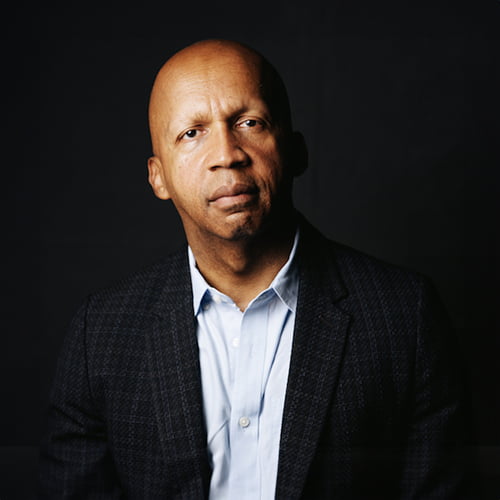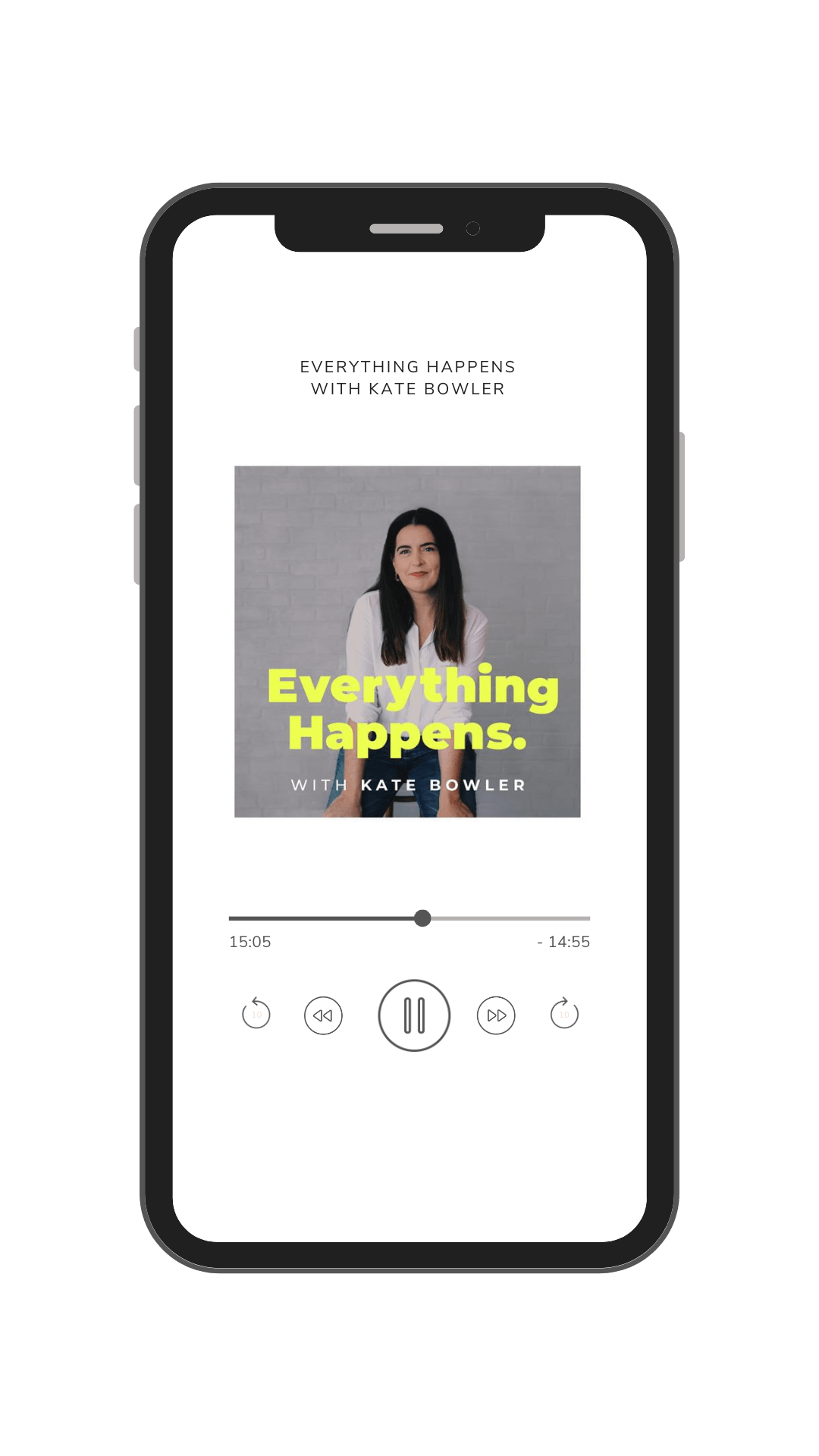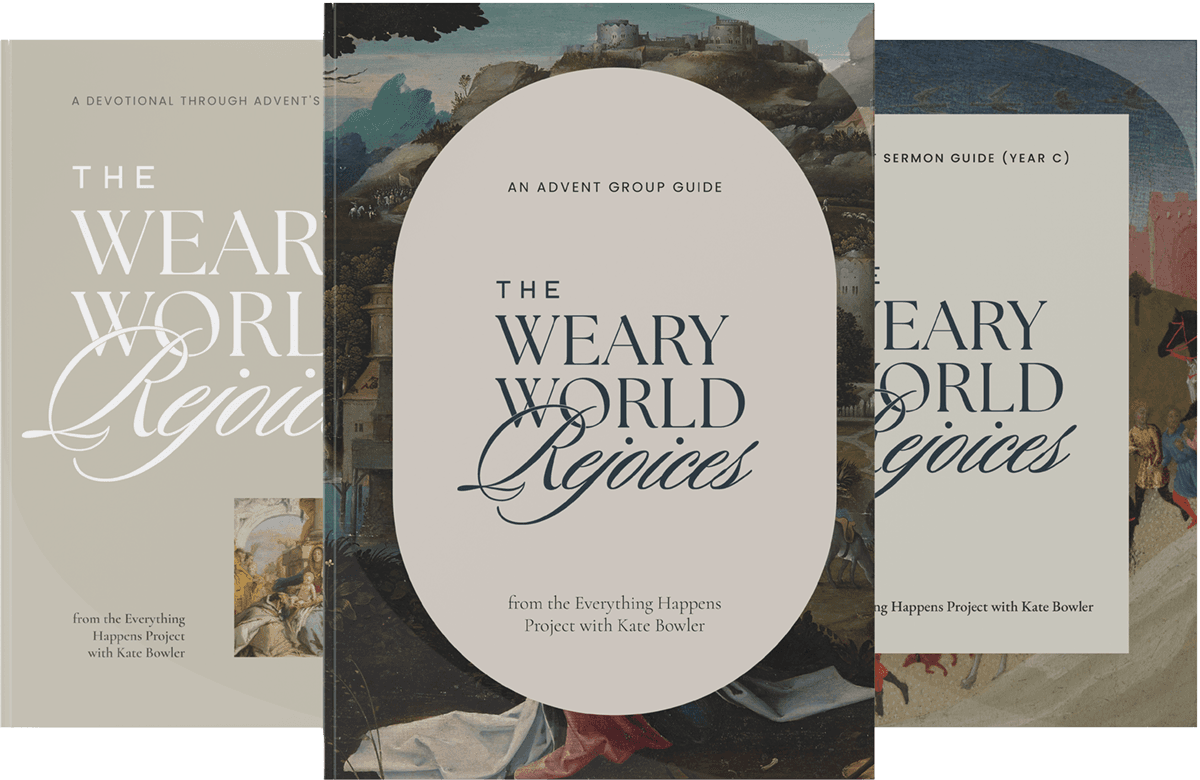Becoming Stonecatchers – Discussion Guide
Becoming Stonecatchers
Kate Bowler and Bryan Stevenson Group Discussion Guide
Bryan Stevenson (founder of the Equal Justice Initiative) is committed to ending mass incarceration and excessive punishment, to challenging racial and economic injustice, and to protecting basic human rights for the most vulnerable among us. As a twenty-three year-old law student, Bryan met his first death row client and was forever changed. His work at the Equal Justice Initiative has won reversals, relief, or release for over 135 wrongly condemned prisoners on death row. He details some of his experiences with this work in the New York Times best-selling book, Just Mercy, which was adapted into a poignant movie starring Michael B. Jordan in 2019.
Duke Professor Kate Bowler is an expert in the stories we tell about success and failure, suffering and happiness. She had stage IV cancer. Then, after many years of living scan to scan, she didn’t. And since then, all she wants to do is to talk to funny and wise people about how to live with the knowledge that, well, everything happens.
In this conversation, Kate was able to talk with Bryan about his yearning to be an agent of redemption, change, restoration and freedom, especially for victims of injustice.

INTRODUCTION QUESTIONS
01
Do you remember when you first experienced or witnessed a moment of injustice?
02
The word “justice” can mean different things to different people. How would you define justice? What is
your understanding of Jesus’ definition of justice?
03
When you read John 8:1-11, how do you see Jesus embodying righteousness and justice, not only to the woman but to the ones ready to condemn her as well?
scripture — John 8:1-11
While Jesus went to the Mount of Olives. Early in the morning he came again to the temple. All the people came to him, and he sat down and began to teach them. The scribes and the Pharisees brought a woman who had been caught in adul-tery, and, making her stand before all of them, they said to him, “Teacher, this woman was caught in the very act of committing adultery. Now in the law Moses commanded us to stone such women. Now what do you say?” They said this to test him, so that they might have some charge to bring against him. Jesus bent down and wrote with his finger on the ground. When they kept on questioning him, he straightened up and said to them, “Let anyone among you who is without sin be the first to throw a stone at her.” And once again he bent down and wrote on the ground. When they heard it, they went away, one by one, beginning with the elders, and Jesus was left alone with the woman standing before him. Jesus straightened up and said to her, “Woman, where are they? Has no one condemned you?” She said, “No one, sir.” And Jesus said, “Neither do I condemn you. Go your way, and from now on do not sin again.”
The Hebrew term for justice, tsedaqah, is often translated as “righteousness” (for example, each of the three times “righteousness” appears in Psalm 85:10-13). This is because in Hebrew, justice means more than punishment or retribution for wrongdoing—it is also concerned with restoring the ways that wrongdoing can break relationships. This righteousness is about being in right relationship with others and with God in a natural and moral sense, not just a legal one. This idea of righteousness can be seen in the outline of the Ten Commandments. The first five commandments are about being right with God and commandments six through ten about living right with others. The Mosaic laws were not put into place for condemnation and judgment of our actions, but rather, to teach us how to live into righteousness with God and with others. When Jesus arrives on earth he embodies this holistic righteousness, offering new beginnings, forgiveness, freedom, acquittals, and new life. We see these embodied in the story of Jesus and the woman caught in adultery in John 8. This may be a story you know well, but listen with fresh ears, paying attention to how Jesus embodies righteousness and justice every step of the way.
WATCH (4 min) Bryan stevenson shares about being a ‘stonecatcher’
One of the ways that Bryan describes this work of justice and mercy is by being a “stonecatcher,” a term based in this beautiful passage where Jesus says to those about to condemn a guilty woman, “Let anyone among you who is without sin cast the first stone.” To Bryan, a stonecatcher is someone who is willing to stand in front of the accused to not only protect them, but the accuser as well.
4. What did you think when Bryan explains that being a ‘stonecatcher’ is not only to protect the accused but to allow the accusers another opportunity, another chance, to embody the righteousness of Jesus? (To show grace, love, mercy, and the opportunity for new life and freedom to those before us.)
Later in Kate and Bryan’s conversation on the podcast, Bryan states, “I read a lot of Reinhold Niebuhr when I was a college student, and I used his quotes at the beginning of my book, and its, “Justice is the instrument, but love is the motive.” And I do think if our quest for justice is our desire for justice isn’t rooted in a kind of love of everyone, not just those on whose behalf we’re seeking justice, but the love of everyone… Because I think of an injustice like a terrible disease, you know, and it’s this kind of infectious, kind of toxic thing. And you don’t want anybody burdened by the attributes of that illness. And you’re trying to shield people who are most vul-nerable, who are likely to be victimized by the injustice, but you want everyone to be free of this horrific malady that causes you to not see humanity and to see dignity and see personhood and and to see grace and redemption. And I do think you have to yearn for a kind of love that you can give to any and everyone.”
5. What can be roadblocks to seeing others through a lens of love? How can we grow in allowing love to cultivate and motivate our passion for justice for all?
6. How can we embody righteousness and self-awareness in our own lives so that we, too, can be stonecatchers?
A Blessing for When You’re Tired of Broken Systems
Oh, God. I am done with broken systems
that break the very people they are meant to serve.
Harness this anger!
Channel it into worthy action, and show me what is mine to fix and what boundaries to patrol to keep goodness in and evil out.
Blessed are we who are appalled
that brute ignorance can so easily dominate over decency, honesty and integrity.
Blessed are we who choose not to look away from systems that dehumanize, deceive,
defame and distort.
We who recognize that thoughts and prayers
are not enough.
We who stand with truth over expediency. Principle over politics, community over competition.
Oh, God, how blessed are we who cry out to you: Empower us to see and name what is broken,
what is ours to restore.
Guide us to find coherent and beautiful alternatives that foster life, hope and peace.
elp us use our gifts with one another in unity. Blessed are we who choose to live in anticipation, our eyes scanning the horizon
for signs of your kingdom–heaven come down–
as we wait in hope and act with courage.


